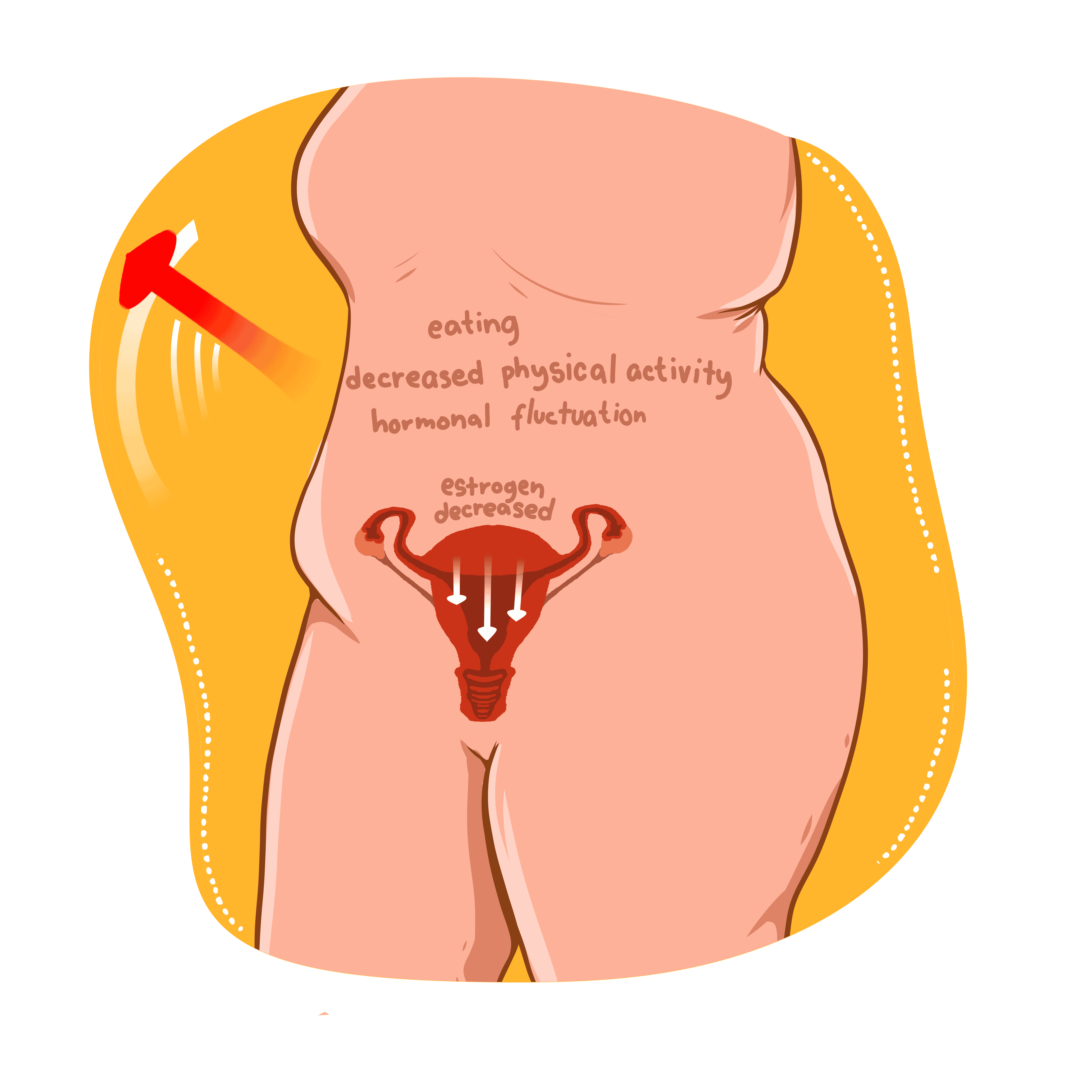Menopausal weight gain, often stored as belly fat in the abdomen due to declining estrogen levels, is a common issue among women during and after menopause. The British Menopause Society reported that around 50% of women experience this with an average gain of 1.5 kg per year during perimenopause. Factors such as hormone fluctuations decreased physical activity, and dietary changes contribute to this weight gain.
Hormone replacement therapy (HRT) may mitigate weight gain by addressing hormonal imbalances, potentially reducing weight gain and abdominal obesity risks. However, consultation with healthcare professionals is advised for personalized management if weight gain is accompanied by concerning symptoms. Read on to learn more about menopause weight gain.
What Is Menopausal Weight Gain?
Menopausal weight gain is defined as the rise in body weight that many women suffer during and after menopause. A significant amount of this weight is stored in the upper body particularly in the abdomen, which causes the menopausal transition to result in an increase in belly fat.
Based on the article published by the British Menopause Society, one of the most common adverse effects of menopause and perimenopause, affecting at least 50% of women, is weight gain. According to their suggestions, women gain around 1.5 kg a year throughout the perimenopause, adding up to an average weight gain of 10 kg by the time they approach menopause. Visceral fat rises from 5-8% of total body weight to 10-15% of total body weight as estrogen levels decline.
Moreover, a variety of factors, including hormone fluctuations, decreased physical activity, changes in dietary preferences, and age-related metabolic shifts, can also be linked to menopausal weight gain. Understanding how these factors interact is essential to developing weight management plans that work during the menopausal transition.





